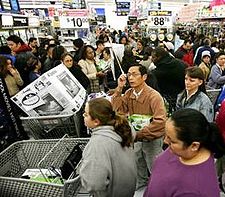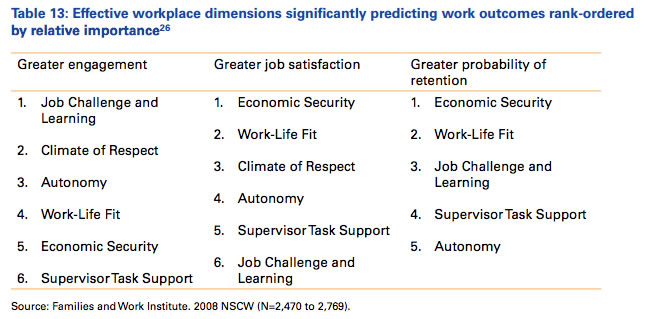Black Friday may soon be named Black Thursday given how many retailers across the country are opting to open a day earlier.
But that’s got retail employees who would rather be spending time with family and friends on Thanksgiving seeing red.
Some employees at a number of major retailers are upset over the so-called “Black Friday creep,” but employers say it’s all about boosting sales, recovering from last year’s sluggish shopping season, and staying competitive during this critical shopping period when many retailers see the biggest profits of the year.
Do employees know how their efforts matter?
“A common image of Black Friday is an intense game of one-upsmanship among retailers pushing to be the first to open after Thanksgiving and consumers scrambling to beat out their fellows to the best bargains; a surprising contrast to the messages of gratitude, contentment, and togetherness that are the overarching themes of Thanksgiving Day,” said Ken Matos, senior director of employment research and practice at the Families and Work Institute.
 With two competing interests – profits versus turkey dinner – how does an employer make it work?
With two competing interests – profits versus turkey dinner – how does an employer make it work?
It’s all about bringing employees into the fold, Matos maintained.
“An important question for retailers to consider is whether they collaborate with or use employees to make Black Friday a success,” he noted.
- While working Thanksgiving night is unquestionably a sacrifice for employees, do they ever get a meaningful explanation of how their work positively impacts their organization?
- How many retailers report back to their employees on the success of their Black Friday efforts? Are they ever actually thanked for their work?
How employers handle employee sacrifices matters
“If employees are not able to see how their work has a positive effect on their organization,” he continued, “all they will notice is the negative effect on their holiday.”
He pointed to the Institute’s research on what makes an effective workplace.
“We have found that work-life fit, a climate of respect, and autonomy are key drivers of employee engagement and job satisfaction” (see table 13 of The State of Health in the American Workforce: Does Having an Effective Workplace Matter?) he said. “The way organizations handle requests for employee sacrifices of work-life fit will impact whether employees feel that they work within a climate of respect and have sufficient autonomy to remain engaged and satisfied with their work.”
Communication is key, he stressed. “Employee morale and acceptance of sacrifice can be enhanced by communicating with them about why sacrifice is necessary and collaborating with them on ways to minimize the impact on employees and the business,” he added.
“Even when no better solution emerges from the discussion employees are more likely to feel respected and maintain higher morale when given an opportunity to voice their concerns and consider alternative options with their employers. For this strategy to be truly effective, employers need to invest in these mutually communicative relationships year round and not just before a major change in the status quo.”
Regardless of how employers and employees manage the new store hours this year it is ultimately up to consumers to decide whether Black Friday becomes Black Thursday. If consumers want to go shopping early on Thanksgiving Day, and retailers will be open to fulfill that desire, retail employees will be heading out even earlier to provide a quality shopping experience for those consumers.
In the end it will take a conversation among all three groups to find a way to make it work for everybody.
This was originally published on the Families and Work Institute website.
